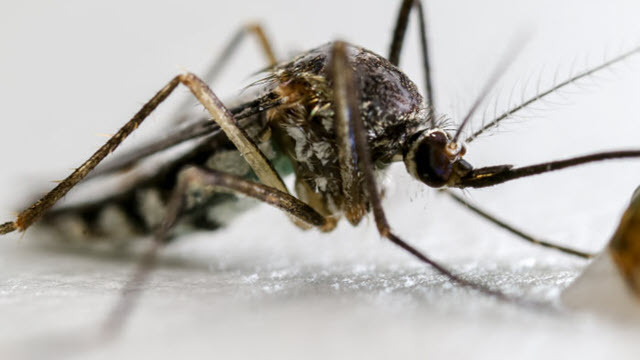Gene Editing: The Key To Invisibility… From Mosquitoes
Scientists with the help of CRISPR-Cas9 achieved this milestone.

As the monsoon season approaches, there will be a lot of stuff to worry about; one such thing is prevention from mosquitoes.
A carrier of multiple deadly diseases, mosquitoes are not to be taken lightly. Regardless of their size and demeanor, these tiny insects can be very minacious. However, we might be now approaching a solution to the mosquito menace.
The research published in the journal ‘Current Biology’ was based on Aedes aegypti mosquitoes that transmit diseases like dengue, chikungunya, yellow fever, and Zika.
Aedes aegypti have many sensory detectors to hunt human blood, but the scientists used its light-sensitive receptor detections for the experiment.
Mosquitoes usually hunt in the dark, but such is not the case with Ae. aegypti; it preys during the day, often at dusk and dawn.
 Lab Manager
Lab Manager
UCSB Neuroscience Researcher Dr. Yinpeng Zhan, the first author on the research, found that with Crispr-Cas9, a gene engineering technique is viable to render Aedes aegypti mosquitoes’ two photosensitive receptors and thus making the host target invisible.
Dr. Zhan said that “The better we understand how they sense the human, the better we can control the mosquito in an eco-friendly manner.”
Co-author on the research Craig Montell, a neurobiologist at the same facility stated that “They can also detect some of the organic cues from our skin, such as heat, humidity, and stench.
But if there is no suitable host, the mosquito will fly straight to the closest-seeming target: a dark spot.”
The molecular mechanism that mosquitoes use for hunting was unknown until 1937 when scientists observed Aedes aegypti mosquitoes being notably attracted to dark clothing.
Endless experiments were performed to study mosquitoes’ vision in wind tunnels and large chambers, which was an expensive affair.
 The New York Times
The New York Times
Dr. Montell, with the help of Dr. Zhan, designed the lab with an inexpensive setup. It had a black circled cage and a white circle in it, which cost less than a hundred dollars and delivered similar results as a wind tunnel. Dr. Zhan conducted spot tests in the cage during Maytime in 2019.
The researchers deadened both light-sensing proteins of the mosquitoes. Subsequently, the mosquitoes whirred around haphazardly with no regard to white circles or black circles. Their ability to look for dark appearing hosts was lost.
Dr. Zhan and Dr. Montell ran more experiments to check if the double mutants had lost their eyesight altogether or just human visibility.
First, they tested their ability to travel in a lights’ direction. Later, they placed electrodes to the eyes of the double mutant to check any voltage changes when responding to light.
And in the end, bypassing the double mutants through rotating cylinders with black and white vertical stripes to see if they followed the moving stripes. All three tests were successfully passed by the double mutants.
 ScienceAlert
ScienceAlert
A Postdoctoral Scholar and Cell and Developmental Biology researcher at UCSD, Neha Thakre said, “Nobody has studied this before,”.
The researcher studying Crispr as a mosquito control tool was not involved with the research but adds that this will provide a great start in an understanding of mosquito vision control.
The world encounters mosquito-based diseases every now and then, and this research seems to be an option for the human race to survive from these miny fatal creatures.
The science of genome editing has taken a leap which will prove to be proficient in the near future.
Source: https://thesecondangle.com/mosquitoes/
Also Read: Depression Treatment- Multiple Medical And Natural Ways To Treat Depression Effectively
Tags: Aedes aegypti mosquitoesCrispr-cas9EditinggeneGene editinggeneticallymosquitoes








